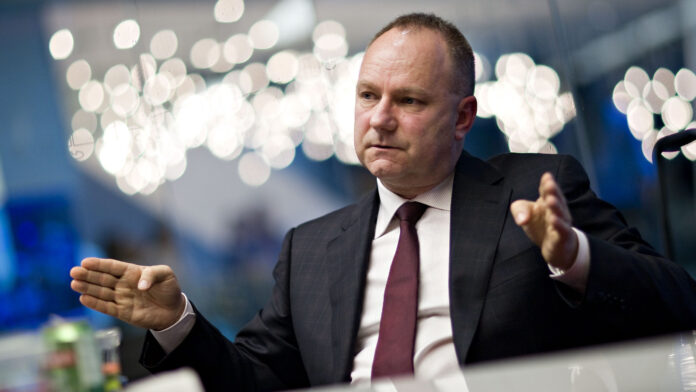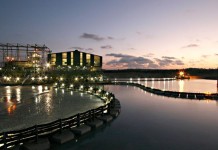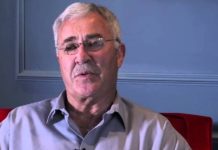
MARK Cutifani has upended the notion that running Anglo American is a career apogee.
Since leaving the UK miner in 2021, he’s remained as active as ever. Last year he was appointed chair of Brazil’s Vale Base Metals, due to list in 2026, and he has lobbied for the creation of a diamond exchange traded fund aimed at breathing new life into the sector.
Most recently, Cutifani joined former Bank of America executive Omar Davis in the London-based Odin Partnership, a merchant bank start-up that aims to capitalise on mining industry deal-flow.
Odin Partnership has a number of industry worthies on its team, including Tony O’Neill, Anglo’s former technical director and a long-standing compadre of Cutifani.
Cutifani says in an interview that the idea for Odin Partnership came while “chatting about the industry” with Davis, who has history with Cutifani in relation to Anglo transactions.
“He wanted to put something together, and I said: ‘You need to differentiate yourself’,” says Cutifani. The outcome was a bank that aims to combine “technical smarts” with Davis’s contact book and knowledge of financial structuring.
“You could get an advisory firm to cobble something together,” says Cutifani. “But we really have everything under one roof. That’s the opportunity.”
For several reasons mining industry mergers & acquisitions will accelerate this year. One is that the West has to respond to China’s control of the electric vehicle minerals supply chain. China ploughed $16bn into securing international production in critical metals last year, compared with $5bn in 2023. Of last year’s transactions, just under half were to gain copper production.
There’s also competition for critical metals production from the Middle East. Saudi Arabia has targeted an annual contribution of $75bn from mining by 2035. Its state-owned mining firm, Ma’aden, joined with its government stablemate the Public Investment Fund to form Manara Minerals, a company mandated to buy up to a fifth of metals companies globally.
Last year Manara replaced Russia’s Alrosa as a 41% shareholder in Angola’s Catoca, the world’s fourth-largest diamond mine. Manara bought a 24% stake in Polymetal from a group of investors as Polymetal prepared to exit its Russian investors.
There has been speculation about a $1bn investment in Barrick Gold’s Reko Diq gold project in northern Pakistan. Cutifani has first-hand exposure of this interest. One of his first acts at Vale Base Metals was to welcome Manara as a 10% shareholder.
At the largest mining companies quoted in Joburg, London, Sydney and Toronto there have been signs of response. Glencore and Rio Tinto may also revisit merger discussions held in October and November, despite an apparent clash in cultures.
While the former interest of miner BHP in Anglo has cooled, it may return. An analyst quoted in a Bloomberg News article about Anglo wittily described it as being an “oven-ready” takeover target once it completes its restructuring this year.
Cutifani is not in favour of Anglo’s restructuring plans, having previously made the company one of the best-performing shares. He grew production by 14% and cut costs by 40% through efforts that he intends to port into Odin Partnership. But at least Cutifani won’t be in the hair of Duncan Wanblad, who now occupies the Anglo hot seat.
“We will stay out of the big five [Rio Tinto, BHP, Glencore, Anglo and Vale] while we cut our teeth,” says Cutifani. “We’re going into the smaller to medium-sized companies; guys who are looking at investing but want operating experience, project execution and [the knowledge of] how to tie these things into different market strategies.
“With Odin’s access to finance, we’re looking at transformations, transactions — with which Omar is exceptional — and advisory.”
Home truths
At 66, Cutifani seems active as ever, but there are signs of an easier lifestyle. He speaks to the FM from his villa in Florence, Italy. Why Florence? “Because I can,” he replies.
Actually, there’s likely more intention in this choice of home because Cutifani is the son of Italian immigrants. He has spoken previously of his modest beginnings, of financing his studies from working as a miner.
He also lived in Joburg for about six years while CEO of AngloGold Ashanti.
The question of whether South Africa holds any allure for mining companies now comes up.
“If [minister of mineral & petroleum resources] Gwede Mantashe can make exploration more attractive, South Africa will get money — but there is work to be done,” Cutifani says.
A version of this article first appeared in the Financial Mail.









